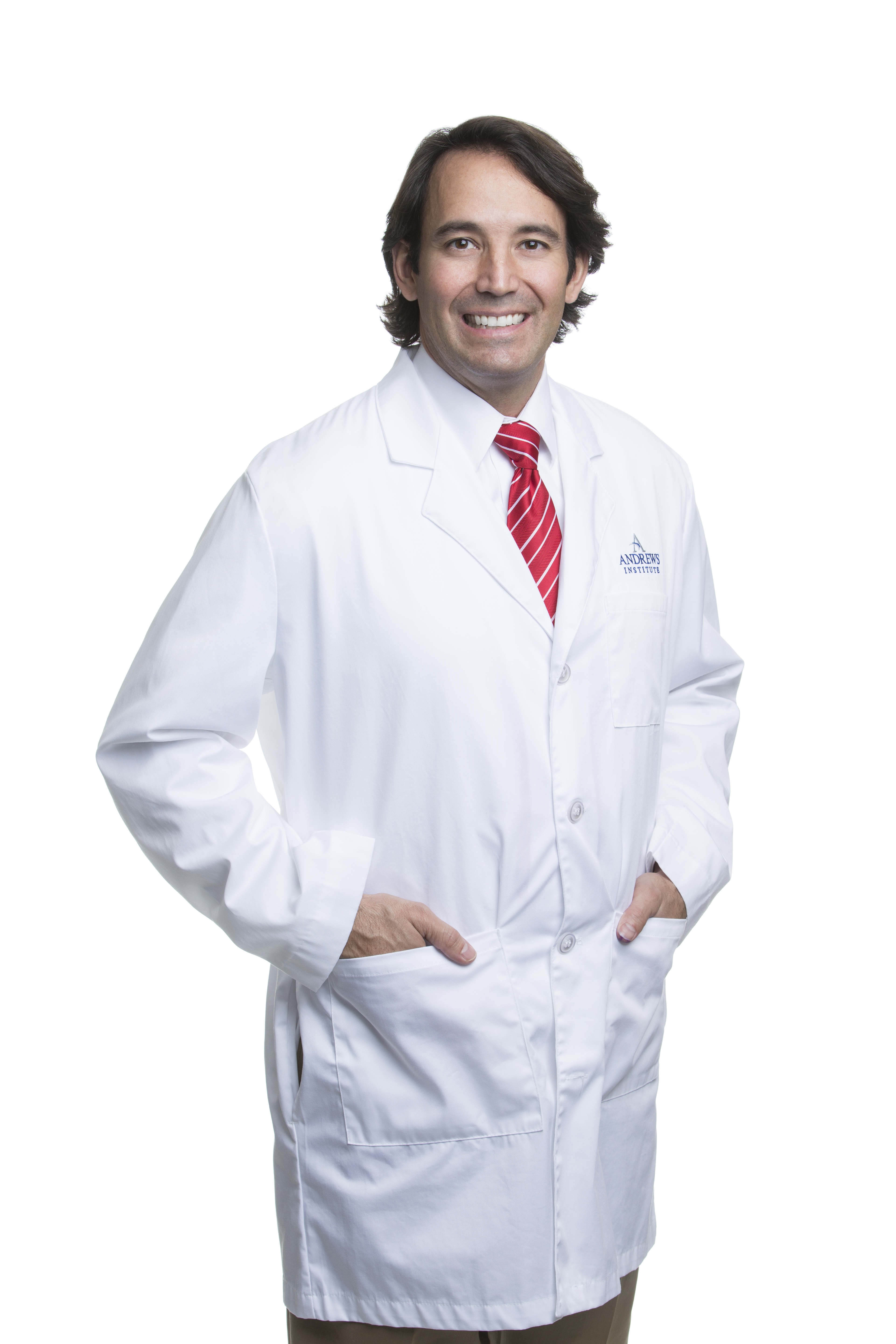Adam W. Anz, MD, the orthopedic surgeon who leads the Andrews Regenerative Medicine Center in Gulf Breeze, Fla., spoke with Becker's Spine Review about his transition from physician to team leader.
Question: What is the biggest challenge you've faced when managing your team?
Dr. Adam W. Anz: I think the biggest challenge has been in myself. Having to try in managing a team, and then fail in managing that team, and then outline how to try again with that same team, or consider  rebuilding the team — I've never experienced that. As physicians and surgeons, we train a lot in medicine, we train a lot in surgery, but we don't train in human resource management.
rebuilding the team — I've never experienced that. As physicians and surgeons, we train a lot in medicine, we train a lot in surgery, but we don't train in human resource management.
When you think about what we've done in our training, whether it be in medical school or in residency, and from there on, you really just have to focus on manning your own ship and making your own ship successful — and then you're going to do great. But now, with team building and team leadership, you have to build the whole team; and if you don't lead that team, then the work will not get accomplished.
We need to understand that it's not a skill we've trained on, so we need to be patient with that, but also be persistent and understand our own weaknesses. Don't be afraid to see your own weaknesses; understand them, and then do your best to improve on them.
Q: How do you motivate your team?
AA: Motivating a team is not as easy as you would think. Every team member may have a different language that they're after or a different motivation technique that they need to thrive. For some people, it's saying that they're doing a good job or reassuring them that they're doing a good job; for other people, it may be working alongside them. There may be a team member who's not performing, not because they can't do the job, but it may be the fact that they haven't been led appropriately or haven't had the right guidance. We need to understand that motivation is complex, and may vary for different people.
Lead by example; show that you're working hard and that you're providing your best at a given job. I've found that if you don't show that you're really keyed into a project or a job, and if you don't show that you've got passion about it and are willing to work hard and put in the extra amount of effort, then those that you're leading won't do it, either. My biggest tip is to motivate by showing the characteristics of hard work and being willing to dedicate your time, energy and excitement. I think that motivates people more than anything else.
Q: How has your approach to team building evolved since you joined the Andrews Institute?
AA: I've realized the importance of evaluating people's specific skillsets. The team you're trying to build is like a puzzle; not every piece is going to be exactly the same. You have to really look and identify people's strengths and weaknesses, and then see how a number of different people will work and fit well together.
My initial approach was just to see who was available and what was convenient, but now I have really evolved to think about how we're building a team that has a specific goal and a specific mission; we really have to analyze and identify roles, responsibilities, strengths and weaknesses of people who can fill those. Before, I didn't understand how important things like evaluating the specifics of a résumé and really evaluating people in depth were.
You need to think from the perspective of the entire team; now I can step back and look at the bigger picture, look at the puzzle pieces and look at all the players in the project to make sure we not only have the right people in terms of experience, but also the right people in terms of integrating them into our team.
Q: What is the No. 1 piece of advice you would give to another surgeon leading a center?
AA: Always stay positive. That's one thing I learned from one of my mentors; you have to see the good in every situation and in all people. If you see the good in everyone around you, in every situation, not only does it make you happy, but it makes everybody around you happy, too. If you focus on the positive terms of those you encounter, it will reflect on your attitude and on those you're trying to motivate and lead.
Q: What is your leadership goal for 2017?
AA: Letting go. Getting the team, enabling the team, giving them their responsibilities and then letting them flourish.
We're built, as physicians and surgeons, to micromanage everything; but if you do that as a leader, the project will likely fail. The biggest surprise for me has been that although micromanaging is what we're used to as surgeons, it doesn't produce the best results in team building or team motivation. You have to delegate; you have to find the right individuals as you build the team, find the right way to motivate them and get them inspired, but if you don't micromanage them, they'll do better.
The more you inspire and enable, but then let go, the more that the team flourishes.

